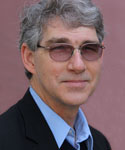Bryan Jenkins, Ph.D.
- Distinguished Professor Emeritus, Biology and Agricultural Engineering
- Energy systems in agriculture
- Biomass fuel production, thermal conversion, and environmental impacts
- Combustion and gasification of biomass fuels
- Properties of fuels
- System models
Biography
Professor Bryan Jenkins teaches and conducts research in the areas of energy and power, with emphasis on biomass and other renewable resources.
He has more than thirty years experience working in the area of biomass thermochemical conversion including combustion, gasification, and pyrolysis.
His research also includes analysis and optimization of energy systems.
He teaches both graduate and undergraduate courses on energy systems, heat and mass transfer, solar energy, and power and energy conversion, including renewable energy and fuels, economic analysis, environmental impacts, fuel cells, engines, electric machines, fluid power, cogeneration, and other technologies.
He is a recipient of an Outstanding Achievement Award from the US Department of Energy for exceptional contributions to the development of bioenergy, and the Linneborn Prize from the European Union for outstanding contributions to the development of energy from biomass.
2009 Johannes Linneborn Prize for Achievements in Biomass Development 2009 ASABE Academic Bioenergy Pioneer Award
EBS 1 Foundations of Biological Systems Engineering (4) Lecture—2 hours; laboratory—3 hours; project— 3 hours. Restricted to students in Biological Systems Engineering. Introduction to engineering and the engineering design process with examples drawn from the field of biological systems engineering. Introduction to computer-aided design and mechanical fabrication of designs. Students work on a quarter- long group design project. EBS 135 Bioenvironmental Engineering (4) Lecture—3 hours; laboratory—3 hours. Prerequisite: courses 125, 130. Biological responses to environmental conditions. Principles and engineering design of environmental control systems. Overview of environmental pollution problems and legal restrictions for biological systems, introduction of environmental quality assessment techniques, and environmental pollution control technologies. EBS 216 Energy Systems (3) Lecture—3 hours. Prerequisite: Engineering 105. Theory and application of energy systems. System analysis including input-output analysis, energy balances, thermodynamic availability, economics, environmental considerations. Energy conversion systems and devices including cogeneration, heat pump, fuel cell, hydroelectric, wind, photovoltaic, and biomass conversion processes. EBS 218 Solar Thermal Engineering (3) Lecture—3 hours. Prerequisite: course in heat transfer. Familiarity with FORTRAN language. Analysis and design of solar energy collection systems. Sunearth geometry and estimation of solar radiation. Steady state and dynamic models of solar collectors. Modeling of thermal energy storage devices. Computer simulation.
Thank you for your interest in the UC Davis Institute of Transportation Studies. Subscribe today to keep up with the latest ITS news and happenings.

